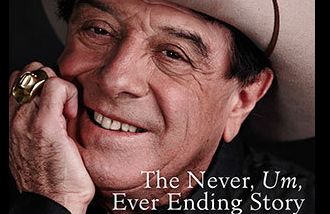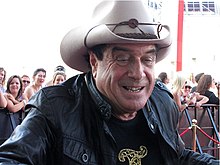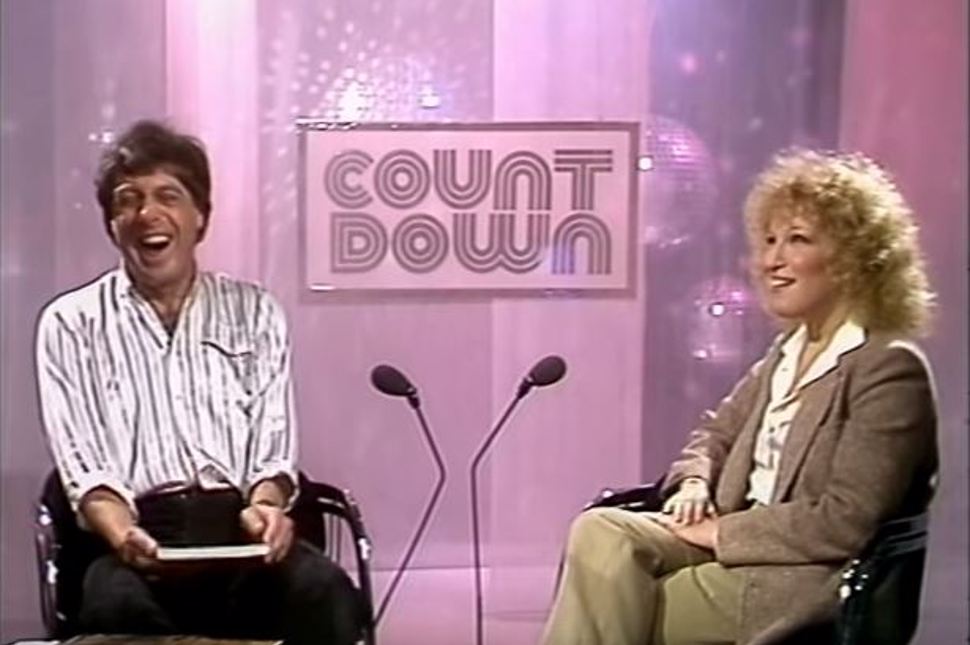
Botanical Hotel, South Yarra – where Molly Meldrum is invited to join Countdown, the ABC TV program
URPoint Details
RENOWNED music TV presenter Ian ‘Molly’ Meldrum outlines how he came to be invited to join a new ABC TV music program, Countdown, from here at the Botanical Hotel, in the mid-1970s. 
It was a strange meeting with ABC TV executives Robbie Weekes and Michael Shrimpton that would propel Molly to iconic status in the Australian music industry … and well beyond. Here is how Weekes and Shrimpton remember this fateful meeting, as told in Meldrum’s autobiography, The Never, Um, Ever Ending Story:
“Bloody hell, that’s the [swear word] we need.”
As Robbie Weekes stares out the window of the Botanical Hotel in South Yarra, he has a revelation. A white Celica, with a hole in the driver’s door, is racing down Domain Road. It does a crazy U-turn, between two trams, and mounts the footpath. Out leaps a guy who runs into the hotel’s bottle shop.
“Which particular [swear word repeated] is that?” Robbie’s ABC colleague Michael Shrimpton asks.
But Robbie is already out the door, dragging the driver from the bottle shop to the main part of the hotel. Holding a bottle of Johnnie Walker in a paper bag in one hand, the guy is introduced: “Michael Shrimpton, this is Ian Meldrum.”
Michael points to the Celica on the footpath. “Why did you do that?”
“Um, er, because there was nowhere else to park.”
“And what do you do for a living, Ian?” Michael asks.
“Um, I’m a record producer and I write a rock column, and, um, oh yeah, at the moment I host a children’s show on Channel Seven. It’s called Anything Can Happen.”
Michael says nothing, but thinks, “God help the country.”
“Um, I need a drink,” Molly says. “Do you want one?”
Both Michael and Robbie decline. As Molly goes to the bar, Michael leans across the table and says to Robbie: “For God’s sake, the man can’t put two sentences together.”
THE LEAD-UP to this fateful meeting is rounded out in the first chapter of Meldrum’s autobiography, The Never, Um, Ever Ending Story:
It was August 1974, a cold day in Melbourne, and unbeknownst to me, Michael Shrimpton and Robbie Weekes – two of the ABC’s rising stars – were having a drink to discuss plans for a music show.
My life was about to change forever.
A couple of months earlier, Ken Watts, the ABC’s director of television, had come into Michael’s Ripponlea office and said, “You know the ABC’s audience is ageing something shocking. Most of them are my age [about 50] and this is the death of the organisation. We get them until they’re ten and then they don’t come back to us until they’re about to die. Do something about it.”
Michael had started at the ABC in 1957, under the netowrk’s specialist rtrainee system. By the time he ended up in the entertainment department, he had worked in all areas of the organisation, including four years in Perth. When he landed in Melbourne he found himself working alongside a blond beanpole, who would introduce himself as, “I’m Robbie Weekes. I’ve recently been retrenched from the 0-10 Network.”
Both highly theatrical, Shrimpton and Weekes became kindred spirits, and after his chat with Ken Watts, Michael went to Robbie and said, “Mate, I’ve got a problem. Watts has come into my office and dumped this time bomb in my lap. We need to talk.”
I knew Robbie from the 0-10 Network, where he had directed both the Happening series and Kommotion. Robbie made the amazing clip for Russell Morris’ The Real Thing, inserting exploding bombs and archival footage from Nazi Germany. It helped the song become a huge hit.
Robbie convinced Michael that a music show was the way to keep young viewers watching the ABC.
I had been campaigning for a national music show in the pages of Go-Set. In July 1973 I wrote:
‘When I tried to persuade my colleagues who write television pages for the dailies and the Sunday papers to put editorial pressure on the television stations, they did point out to me that the budget to stage such a show would be astronomical and at the same time-slot ratings wouldn’t justify the cost. They did, however, say that they thought the ABC should at least give and hour a week to such a program. Well, I ask you, who do you go to to convince the ABC? Oh, yes, they could afford to present a pop show because, after all, it’s our money they are using.’
Two months later, my good friend Ed Nimmervoll wrote a Go-Set editorial, headed ‘The Lost Music’. ‘It is frustrating to realise the existence of talent that has no way of reaching an audience. Television, though, might be the answer to many of the business’s ills.’
The only pop show in prime time was GTK, which ran for a few minutes on weeknights on the ABC – I was outraged when that show’s axing was announced at the end of 1973.
“Well, that’s the last straw.” I furiously wrote. Australian television has finally hammered in the last nail. Australian artists desperately need a television outlet.” I started a petition – We consider the show the one vital contribution to the youth culture aired on television – which saved the show.
Robbie and Michael decided they would do a show combining local and international acts, with high production values, so the local artists wouldn’t suffer in comparison to the overseas artists. They didn’t want viewers saying, “Gee, that David Bowie’s terrific, but who’s this lot?” They also refused to accept the view that because the show was aimed at kids they could skimp on production values. Robbie and Michael were TV geniuses. They planned Countdown like you would plan a drama, fighting to get the best people – the best directors, the best camera people and the best set designers – working on the show.
Robbie and Michael later told me that as they sat drinking pots of beer at the Botanical, they came across a stumbling block: who would select the acts to appear on the show?
“Do you want to go out and look for the bands?” Robbie asked Michael.
“Oh, heavens no,” replied Michael, “What about you?”
“Certainly not.”
And then I drove up. Robbie remembered me from our days together on Kommotion and the Happening series. He knew I’d just finished on Go-Set and that I’d produced records for Russell Morris and Colleen Hewitt.
[‘I knew he had a good ear. And also he wasn’t aligned with any record company. We didn’t want anyone with a vested interest.” – Robbie Weekes.]On that fateful day at the Botanical Hotel, I became the talent coordinator for the as-yet unnamed music show.
Extract from: Molly Meldrum, The Never, Um, Ever Ending Story. Published by Allen & Unwin (2014), Crows Nest, Sydney, NSW 2065. www.allenandunwin.com.

ends
- Type:
- Famous Locals















